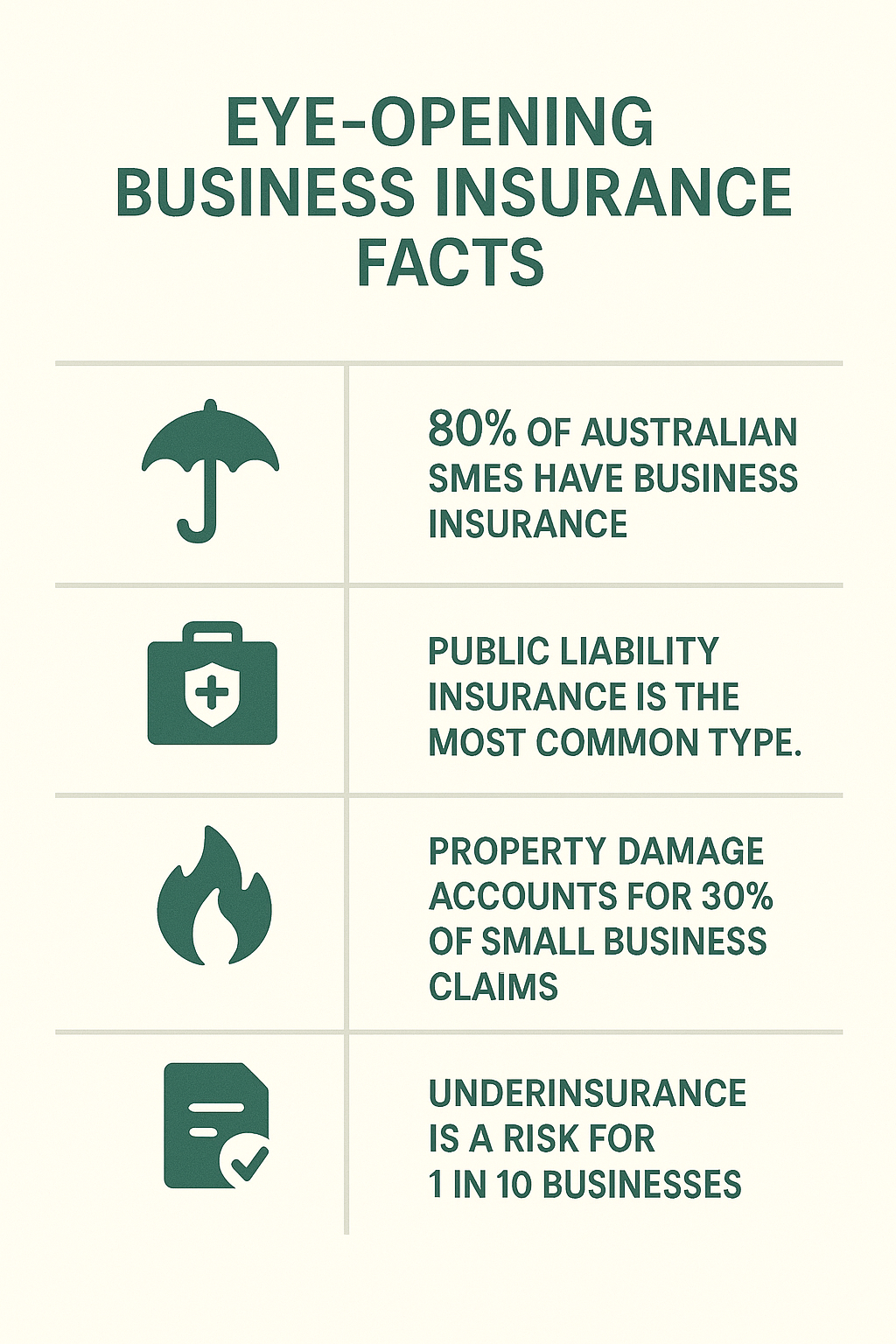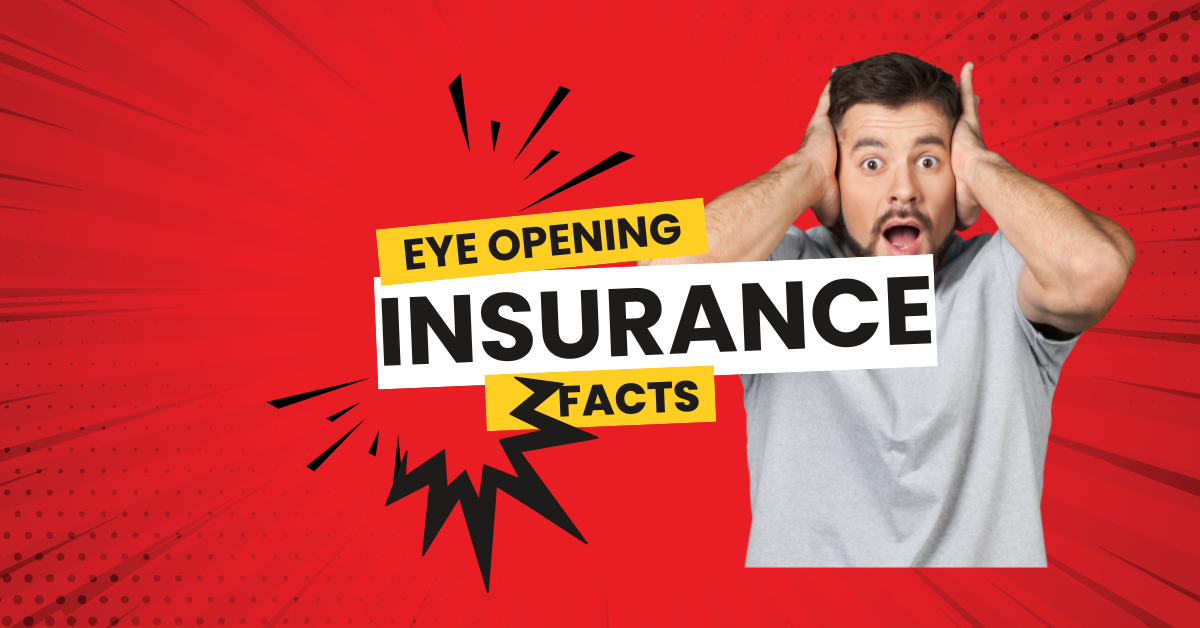In today’s fast-paced business environment, understanding business insurance is more crucial than ever for small business owners and entrepreneurs. Many decision-makers might unknowingly fall prey to common business insurance myths, potentially jeopardizing their enterprise’s future.
As a trusted advisor and industry expert, I am here to illuminate the importance of business insurance and reveal eye-opening facts that empower your business journey.
By breaking down these complexities, we aim to promote innovative business solutions, safeguard your ventures and encourage proactive engagement with protective services. Join us as we unravel the intricacies of business insurance and equip your business with the confidence to thrive.
👉 Need Help and Advice With Your Business Insurance? Get Help Here.
Understanding Business Insurance
Business insurance is crucial for protecting your company. To help you navigate this complex landscape, let’s explore its definition, key components, and various types.
What is Business Insurance?
Business insurance is a protective measure that safeguards companies from financial losses due to unexpected events. It’s a contract between a business and an insurance provider that offers coverage for various risks.
Different policies cater to specific needs, from property damage to liability claims. Understanding business insurance is essential for long-term success and stability.
Insurance acts as a safety net, allowing businesses to operate with confidence. It provides peace of mind, knowing that unforeseen circumstances won’t lead to catastrophic financial consequences.

Key Components of Coverage
Business insurance typically includes several key components that work together to provide comprehensive protection. These elements form the foundation of a robust insurance strategy.
-
Property coverage: Protects physical assets like buildings, equipment, and inventory.
-
Liability protection: Shields against claims of injury or damage caused by your business.
-
Business interruption insurance: Covers lost income during temporary closures.
Additional components may include workers’ compensation, cyber liability, and professional indemnity coverage. The specific mix depends on your industry and risk profile.
Understanding these components helps craft a tailored insurance plan for your unique business needs.
👉 Need Help and Advice With Your Business Insurance? Get Help Here.
Types of Business Insurance
There are various types of business insurance, each designed to address specific risks and scenarios. Understanding these options is crucial for comprehensive coverage.
General Liability Insurance: Covers third-party claims of bodily injury or property damage.
Property Insurance: Protects your physical assets from damage or theft.
Professional Liability Insurance: Safeguards against negligence claims or errors in professional services.
Other types include workers’ compensation, cyber liability, and commercial auto insurance. The right combination depends on your business model, industry, and risk exposure.
Importance of Business Insurance
Business insurance plays a vital role in protecting your company’s future. It’s not just about compliance; it’s about ensuring your business can weather unexpected storms and continue to thrive.
Protecting Your Assets
Business insurance is crucial for safeguarding your company’s assets. It provides a financial buffer against unforeseen events that could otherwise devastate your business.
Physical assets like buildings, equipment, and inventory are protected from damage, theft, or loss. This coverage ensures that a single incident doesn’t wipe out years of investment.
Intellectual property and digital assets are also safeguarded through specialized policies. In today’s digital age, this protection is increasingly essential for businesses of all sizes.
By protecting your assets, business insurance allows you to focus on growth and innovation without constant worry about potential losses.
Mitigating Financial Risks
Business insurance is a powerful tool for mitigating financial risks. It helps companies manage potential liabilities and unexpected expenses effectively.
Liability coverage protects against costly lawsuits, which can drain resources and damage reputations. This protection extends to various scenarios, from customer injuries to product defects.
Business interruption insurance safeguards against income loss during unforeseen closures. This can be crucial for maintaining cash flow and covering ongoing expenses during challenging times.
By transferring certain financial risks to insurers, businesses can allocate resources more efficiently and confidently plan for long-term growth.
👉 Need Help and Advice With Your Business Insurance? Get Help Here.
Ensuring Business Continuity
Business insurance is crucial in ensuring continuity, even in significant challenges. It provides the support needed to recover and resume operations quickly.
Insurance can cover the costs of rebuilding, replacing equipment, and restoring data in a disaster. This financial backing accelerates the recovery process.
Coverage for business interruption helps maintain cash flow during downtime. This support can be the difference between a temporary setback and a permanent closure.
By ensuring continuity, business insurance protects not just the company but also employees, customers, and stakeholders who depend on its ongoing operations.
Common Business Insurance Myths
Misconceptions about business insurance can lead to inadequate coverage or unnecessary expenses. Let’s debunk some common myths to help you make informed decisions.
Debunking Coverage Misconceptions
Many business owners hold misconceptions about insurance coverage, which can lead to gaps in protection. It’s crucial to understand what your policy covers. A common myth is that general liability insurance covers all types of lawsuits. It typically only covers third-party claims of bodily injury or property damage.
Another misconception is that homeowners’ insurance automatically covers home-based businesses. Most homeowners’ policies have limited coverage for business activities.
Understanding these nuances helps craft a comprehensive insurance strategy that protects your business from various risks.
Cost Myths vs. Reality
Business insurance costs are often misunderstood, leading some companies to forgo essential coverage. Let’s examine the reality behind these cost myths.
Myth: Business insurance is always expensive.
Reality: Costs vary widely based on factors like business size, industry, and coverage needs.
Myth: Cheaper policies provide the same coverage.
Reality: Lower premiums often mean less comprehensive protection or higher deductibles.
The true cost of actual insurance should be weighed against the potential financial impact of being uninsured. Often, the peace of mind and protection offered far outweigh the premiums paid.
Small Business Insurance Myths
Small businesses often fall prey to specific insurance myths that can leave them vulnerable. Understanding these misconceptions is crucial for proper protection.
Myth: Small businesses don’t need as much coverage as larger companies.
Reality: Small businesses can be more vulnerable to certain risks and may need comprehensive protection.
Another common myth is that personal insurance policies cover business activities. In fact, personal policies usually explicitly exclude business-related claims.
Lastly, many small business owners believe they can’t afford proper insurance. In reality, flexible options are designed specifically for small businesses, offering essential coverage at reasonable rates.
Eye-Opening Business Insurance Facts
Understanding the realities of business insurance can be truly eye-opening. Let’s explore some surprising statistics, success stories, and how insurance empowers growth.
Surprising Statistics and Trends
The world of business insurance is constantly evolving, with new trends and statistics emerging regularly. These insights can help shape your insurance strategy.
-
75% of businesses are underinsured by 40% or more.
-
Cyber insurance claims have increased by 50% in the last year.
-
Natural disasters cause $18 billion in annual losses to uninsured businesses.
These statistics highlight the importance of regular insurance reviews and adjustments. As business landscapes change, so do risk profiles and insurance needs.
The trend towards specialized policies, such as cyber insurance, reflects the changing nature of business risks in the digital age.
Real-World Success Stories
Real-world examples demonstrate the tangible benefits of proper business insurance. These success stories illustrate how insurance can be a lifeline in critical situations.
“Our cyber insurance policy saved us from bankruptcy when we faced a major data breach. The coverage not only helped us recover financially but also provided crucial support in managing the crisis.” – Sarah T., Tech Startup CEO
Another case involved a small restaurant that suffered extensive fire damage. Their comprehensive property insurance covered rebuilding costs and lost income during closure, allowing them to reopen stronger than ever.
These stories underscore the importance of viewing insurance not as an expense, but as a vital investment in your business’s future.
How Insurance Empowers Growth
Business insurance doesn’t just protect; it empowers companies to grow and take calculated risks. This empowerment is a key factor in business success and innovation.
With proper coverage, businesses can:
-
Explore new markets with confidence
-
Invest in expansion without fear of catastrophic loss
-
Focus on innovation rather than risk mitigation
Insurance also enhances credibility with clients and partners. Many contracts require specific insurance coverage, opening doors to new opportunities.
By providing a safety net, insurance allows businesses to pursue growth strategies that might otherwise seem too risky, fostering a more dynamic and competitive business environment.
Making Informed Insurance Decisions
Choosing the right insurance is a critical business decision. Let’s explore how to evaluate your needs, select appropriate policies, and leverage expert advice for optimal protection.
Evaluating Your Business Needs
Assessing your business insurance needs is a crucial step in protecting your company. It requires thoroughly understanding your operations, risks, and growth plans.
Start by identifying your key assets and potential liabilities. This includes physical property, intellectual property, and possible legal risks.
Consider your industry-specific risks. For example, a tech company might prioritize cyber insurance, while a construction firm might focus on liability and equipment coverage.
Evaluate your current and future needs. As your business grows, your insurance requirements will likely change. Regular reassessments ensure your coverage remains adequate.
Choosing the Right Policy
Selecting the right insurance policy involves balancing coverage, cost, and specific business needs. This decision can significantly impact your company’s future.
-
Compare policies from multiple providers to understand available options.
-
Look beyond premiums to consider deductibles, coverage limits, and exclusions.
-
Consider bundling policies for potentially better rates and more comprehensive coverage.
Tailor your coverage to your specific business model. Off-the-shelf solutions may leave gaps in protection or include unnecessary coverage.
Remember, the cheapest option isn’t always the best. Focus on value – the right balance of coverage and cost for your unique situation.
Engaging with Industry Experts
Navigating the complex world of business insurance often requires professional guidance. Engaging with industry experts can provide valuable insights and ensure comprehensive coverage.
Insurance brokers can offer impartial advice on various policies and providers. They often have access to a wide range of products and can negotiate better rates.
Risk management consultants can help identify potential vulnerabilities in your business operations. Their insights can inform your insurance strategy and potentially reduce premiums.
Regular consultations with these experts help keep your coverage up-to-date with changing business needs and market conditions. This proactive approach ensures your business remains adequately protected as it grows and evolves.




